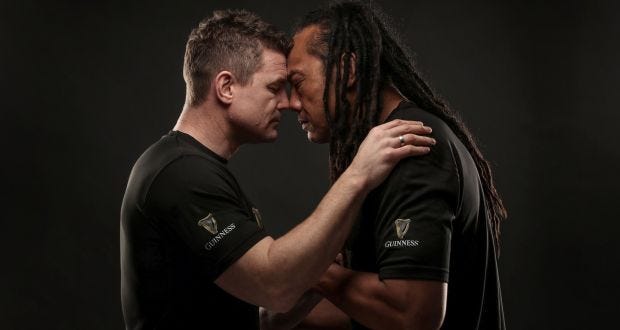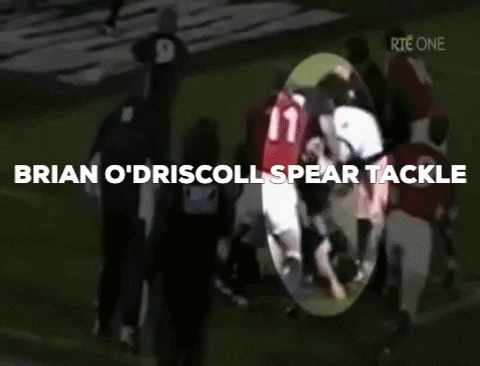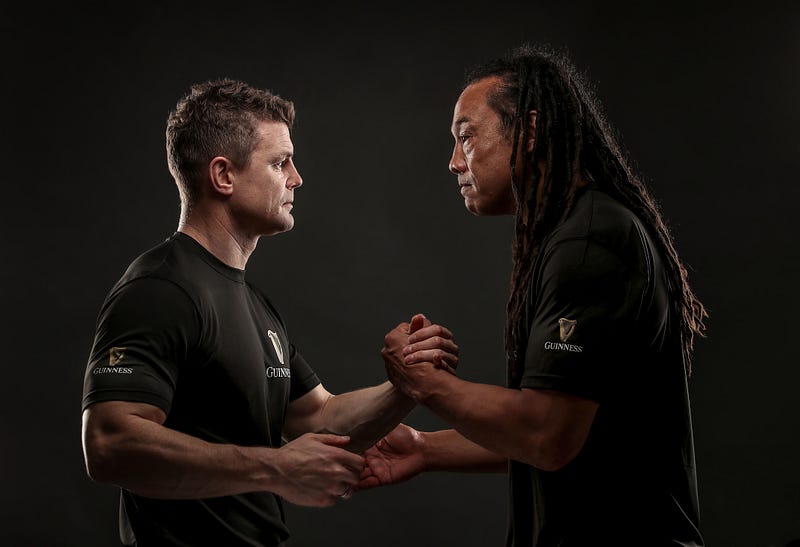
“You learn a lot from the scars that you get. If you think it was a nick, you can get complacent and see it as just an anomaly. If the scar is deep enough, you get to learn a lot more out of it.” — Tana Umaga (former All Blacks Captain, pictured above right)
Before reading this article, look at the honesty and respect shared between the two players above. What does it say to you? The players are performing the traditional Māori greeting, the hongi is performed by two people pressing their noses together; some include, at the same time, the touching of foreheads. In the hongi, the ha (breath of life) is exchanged in a symbolic show of unity. Through the exchange of this greeting, one is no longer considered manuhiri, a visitor, but rather tangata whenua, one of the people of the land.
When I saw this image I could feel the love and respect transferred from human to human. I missed this image when it came out last year, so I wanted to share it with anyone else who may have missed it. In turn, it inspired this quick post. I share this to commend two iconic rugby players who publicly ended a polarisation in international rugby that spanned over a decade.
First, let me give you a whirlwind background to the image.
The Spear Tackle
In 2005, The British and Irish Lions faced a pumped-up New Zealand All Blacks in the first test of the British and Irish Lions Tour of New Zealand. Less than a minute into the game the All Blacks players Tana Umaga and Kevan Mealumu spear tackled key Lions player Brian O’Driscoll. O’Driscoll moved his head to avoid breaking his neck and sacrificed his shoulder in the process. A dislocated shoulder saw his test series end and his playing career halted for a whole five months. See the tackle below for more context, if you can stomach it.

This tackle sparked a polarisation in international rugby that spanned over a decade. Neither Umaga nor Mealumu was sanctioned. Apart from the highly dangerous act, the fact that there was no reprimand infuriated many authorities, officials and fans of the game alike. O’Driscoll and Umaga both shared that it is the one question they can guarantee in any Q&A or interview. While they met about it and buried the hatchet years ago, they wanted to make it a public gesture and this is what we see in the image below.

“Some of us think holding on makes us strong, but sometimes it is letting go.” — Hermann Hesse
It is said to trap a monkey, certain indigenous tribes would employ the following technique. They hollowed out coconut (or similar vessel such as a gourd) and put some fruit inside as bait. Next, the trap is placed on a tree that monkeys frequent. In time, the monkey puts his hand in the coconut to grab the fruit, however, when he makes a fist to grab the bait, he is trapped, his fist will no longer fit through the hole in the coconut. To evade his approaching captors, all the monkey needs to do is let go of the bait, but instead, he continues to holds on and suffers a fate worse than letting go. All the monkey had to do was let go of the bait and he could go free, but he was simply not willing to let go!
How many of us hold on with clenched fists to the past, clutching to mental models of how things used to be, how we used to be? We dwell on the past, forgetting about the present, let alone the future. As individuals, we do this all the time, defining ourselves by the experiences of our past, rather than creating new possibilities by having visions for the future.
This is why I commend this global gesture by O’Driscoll, Umaga (and empowered by Guinness). It is an example for all of us.
“It was one of those things. Was it unfortunate? Yeah. Should you have dealt with it slightly differently? Yeah. You’ve got to move on. You can’t bring those sorts of things through life.” — Brian O’Driscoll